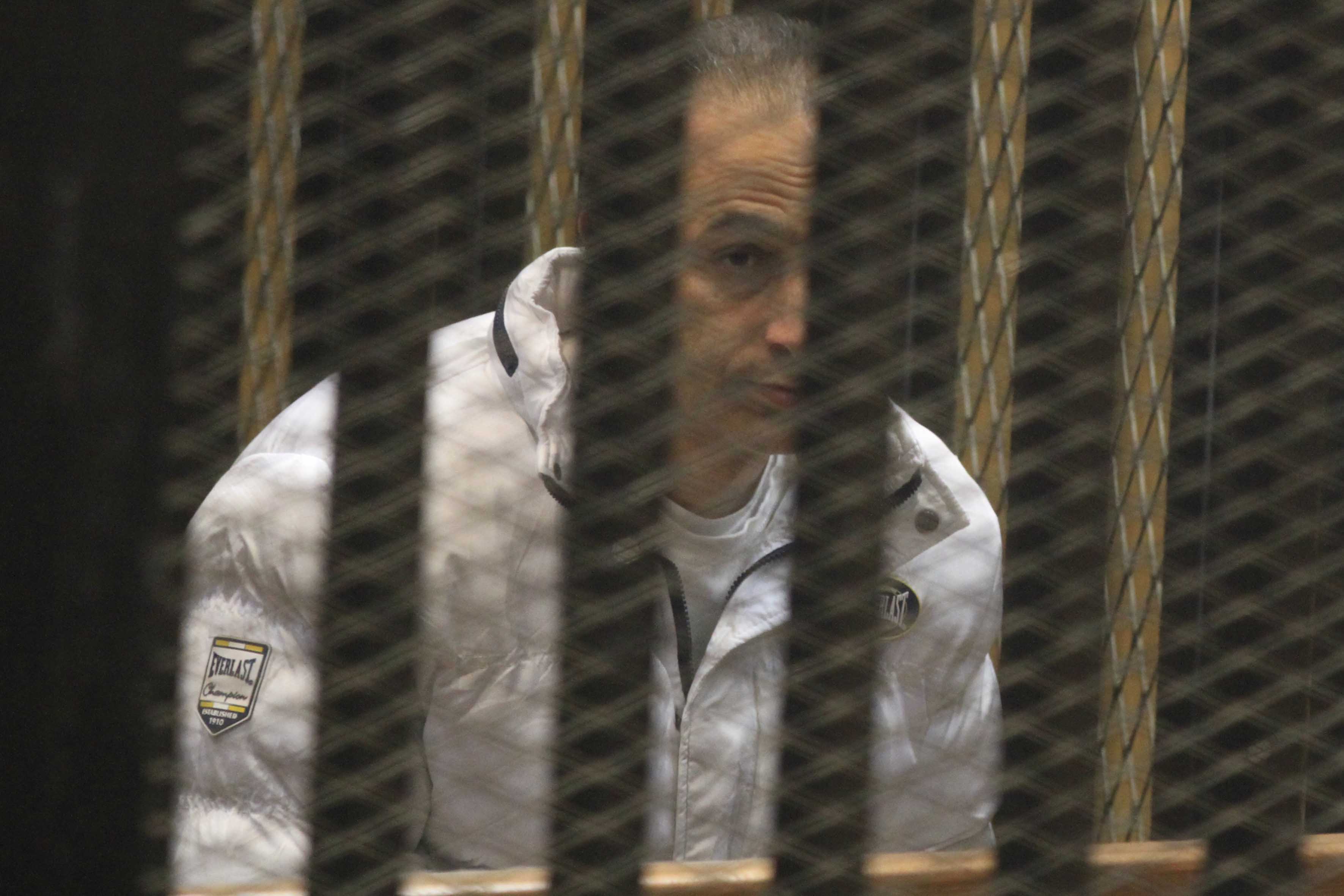CAIRO: Seven lawyers for editor in chief Ibrahim Eissa presented Sunday defense arguments to the Abbaseyya court.
Eissa himself also spoke before the court.
The case was adjourned until after the summer recess. The next hearing will be September 28 when the final verdict will be announced.
In March, Eissa was convicted of “publishing false information of a nature to disturb public order or security under article 188 of the Penal Code and sentenced to six months imprisonment and a fine of LE 200.
In August 2007, Al-Dostour had published articles suggesting that Egyptian President Hosni Mubarak is in ill-health. The court found in favor of the prosecution’s claim that the articles had had a detrimental effect on the Egyptian economy.
At the last hearing, held on July 13, the court rejected all of the defense’s arguments concerning the legal aspects of the case.
Today’s arguments concerned the substantive aspects of the case.
Lawyers reiterated today their contention that the prosecution had failed to establish that the publication of the articles had had a negative effect on the Egyptian stock exchange.
Head of the Lawyers’ Syndicate Sameh Ashour pointed to the testimony of a Central Bank representative who told the court that it was impossible to identify a link between the publication of the articles and negative market activity.
Lawyer Mohamed Selim El Awwa questioned the logic behind the charges against Eissa.
“If reports about the president’s health really inspire this much terror and fear amongst people this means that the country is in trouble – it means that there is only one leader, one maestro leading the country and that he can’t be replaced.
El Awwa also questioned why the president’s office had not issued a statement refuting the allegations made in Al-Dostour.
“If the presidency had issued a statement or a report denying the allegations Eissa would have had to apologize and issue a retraction. Why didn’t it do this?
Hussein Helmy emphasized the right of journalists to publish information and the right of the public to receive it.
“A news story is anything which is of interest to people, Helmy said.
“It’s irrelevant whether the story turns out to be a rumor, or untrue, as long as it is published in good faith, he continued.
Lawyer Essam Sultan maintained that the charges against Eissa are politically-motivated.
“This is a political disagreement between the government and Eissa, and it doesn’t belong in court, Sultan said.
Yasser Fathy underlined the same point.
“Eissa was accused of publishing false information as soon as the articles were published – that is, before Mubarak’s visit to Borg El-Arab on August 29, 2007.
A public appearance by the president a few days after the articles were published was used by Mubarak’s supporters as evidence to disprove the allegations of ill-health made by Al-Dostour.
“The fact that Eissa was accused of publishing false information almost immediately proves that other reasons pushed them to bring these charges.
Rights activist and lawyer Hafez Abou Saeda questioned how it was possible for a newspaper to ignore a rumor circulating round the country.
He rejected prosecution office claims that the appearance of several articles in which the president’s health was discussed established “ill will – the mental element of the crime under article 188.”Repeated coverage of an issue in a newspaper is not ill will. It’s called follow-up, or analysis, Abou Saeda said.
He also warned that a rejection by the court of the appeal would be one of the worst judgments in the history of human rights in Egypt.
“In the human rights pledges Egypt listed as part of its application for membership of the United Nations Human Rights Council, respect for freedom of expression as its number one priority, Abou Saeda explained.
“When Egypt’s commitment to its pledges is reviewed in 2010 it is cases such as that against Eissa which will ensure that Egypt is expelled from the Human Rights Council. This will have the political and economic consequences for Egypt which the prosecution accuse Eissa of causing with his articles, he continued.
For its part the prosecution reaffirmed its belief that the articles damaged investor confidence which in turn led to the withdrawal of foreign investment.
The prosecutor alleged that the claims made in the articles that the illness would lead to decisions being taken “emotionally had damaged national interests.
He also rejected the defense’s claims that the articles merely republished a rumor already circulating.”There was absolutely no basis for the claims made in the articles that the president had traveled to France for treatment nor for allegations that he was suffering from a blood circulation disorder.
“The style in which the articles were written left no doubt to the reader that the articles were a statement of fact, he continued.
Eissa himself rejected this.
“Absolutely nothing was written saying with 100 percent certainty that Mubarak is in ill health, he told the court.
Eissa went on to question how it is possible to establish that a news report is “false information in the absence of an official statement of such by the presidency.
He maintained that the news published in the articles was true.
Eissa, an outspoken critic of the current regime, maintained his right to challenge the government.
“Yes I am an opponent of Mubarak – a political opponent rather than of him personally.
“It’s my right – and my duty – to challenge and criticize political policy.
“I would like to know which law exactly bans the circulation of information about the president’s health, he continued.
Speaking after the court hearing Eissa told reporters that charges such as those leveled against him damage Egypt’s reputation.
“Any time a journalist is imprisoned Egypt’s reputation, its legacy, is damaged. We as Egyptians deserve much better than this – Egypt should be a model for the third world.
“I fear that many of the individuals ruling this country do not understand its true value, he said.
